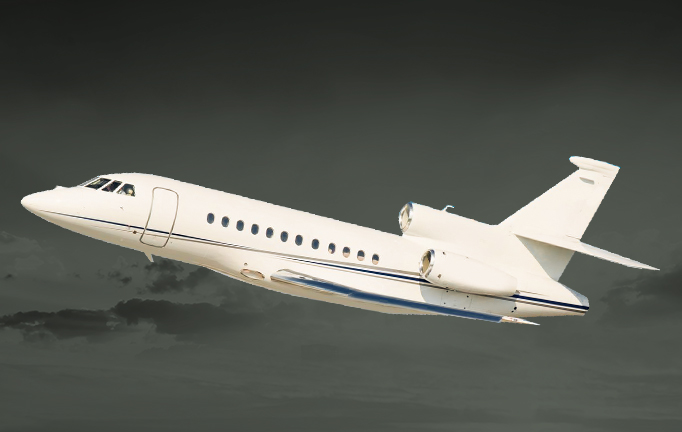Although some market observers believe business aviation in Saudi Arabia has remained subdued since 2017—when hundreds of prominent officials and businessmen were detained pending restitution of more than $100 billion in holdings to the state—other industry participants are committed to driving the sector forward as best they can given the circumstances.
“At NasJet, we're doing business just fine,” said Yosef Hafiz, v-p of sales and marketing at Riyadh-based NasJet. “We're expanding in what we do best, which is aircraft management and charter. At the same time, we're seeing just a lot of changes. Some people have downsized, others are grouping together, and so on,” he told AIN.
According to Hafiz, the company’s clients are primarily aircraft owners, with aircraft under management at the business’s core. NasJet’s main recent operations have been 70 percent in the private sector and 30 percent in the government sector. “It's interesting to compare this to how we used to do business maybe 10 years ago. Back then, it was on the flip side,” he said. “We had 70 percent, if not more, of the revenue stream coming from the government, and only around 30 percent from the private sector.”
To Hafiz, the resilience of diversified Saudi companies was evident. “They don't put all their eggs in one basket. We're privately owned, so we're not owned by any government or semi-government entity. We have to make ends meet here at NasJet and [commercial carrier] Flynas. If we don't do well, we're going to shut down.”
He added that despite Covid, both 2020 and 2021 were good years for the company. “We didn't do as well as in 2019, obviously, because 2019 was a banner year; there was a lot of flying going on,” he said.
“In 2020, as soon as the pandemic started, everything came to a standstill [in the kingdom] throughout the year, Hafiz continued. “Things started picking up in 2021, a year later, and people started flying privately more. We added two aircraft under management in 2021. A lot of changes happened and then this year the gates are fully open and everybody's flooding the market with charter requests.”
Saudi Arabia’s massive size dictates that domestic flying is a major consideration. With mega-projects Neom and Amaala—which has now been merged into the Red Sea Development Co.—moving forward along a 400-km (249-mile) stretch of Saudi Arabia's north-westernmost coast, airports are being developed to serve the sites, with Ireland’s DAA International set to manage operations at Red Sea International Airport.
“The aircraft are operating a lot domestically,” he said. “Other folks around us in the Gulf Cooperation Council don't have a domestic market. We do because of the kingdom’s massive land structure—north, east, and west.”
The busy Saudi summer season started on May 1, according to Hafiz. “Even though kids are still in school, the owners are still flying, all the way up to August 31 or September 1. It's going to be a prime season for us—May, June, July, August—heavy flying for NasJet. It's a lot of business to be generated.”
Saudi Arabia’s FBO market has also undergone rationalization in recent years. Private terminal operator PrivatAir Saudi Arabia has left the market and Hafiz said there were only two FBO operators remaining in Saudi Arabia today—Saudia Private Aviation (SPA) and Jet Aviation.
“There's nobody else. Arabasco shut down four years ago,” he said. “We decided to shut down our NAS-ExecuJet partnership during the pandemic. The numbers weren't driving enough business, and the volume of the business decreased substantially. It wasn't worth it for them to continue. The company that took over is Riyadh Airport Company. Similar companies are operating in Jeddah and Dammam.”
Hafiz said the kingdom needed more aircraft because of very high charter demand, but added that recently implemented taxation rules had left Saudi operators at a disadvantage.
“A lot of aircraft that fly internationally in and out of the kingdom are coming from Dubai or Europe,” he noted. “Companies who are flying in and out aren’t required to pay 15 percent value-added tax (VAT) on their revenue, whereas we as a Saudi company are, on revenue on all flights, whether charters within the kingdom or to an international destination. We're not competitive because of the VAT.”
However, he added that NasJet was the only company in Saudi Arabia with a large and diversified fleet of managed aircraft. “If you look around, even in Dubai, we're one of the largest,—if not the largest—and most diverse operators in the region, with 10 different makes and models of aircraft,” he said.
“I'm always optimistic. I always look to the future. I believe that aviation has a very bright future in Saudi Arabia. We're just going through a lot of changes right now within and we need organizations and the authorities around us to support us. That's really the key thing, Hafiz said.
“Things are improving down the road, even though we've taken two steps back. Sometimes you have to do that in order to get on the right track, build the foundation again, and move forward,” he concluded.

